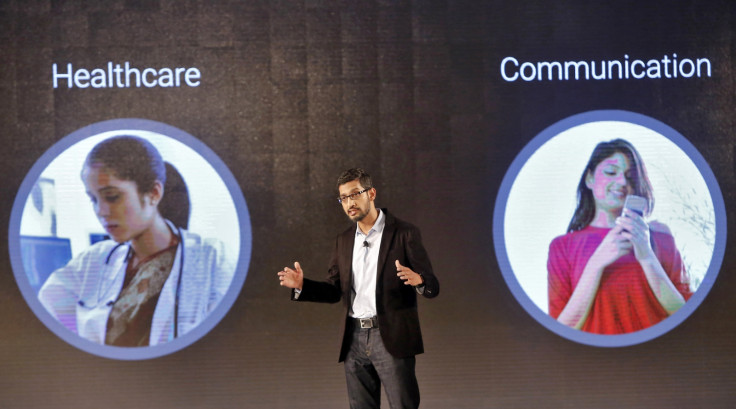Google's X Division Pioneers a Super Pill that Seeks Out and Identifies Illnesses

The search engine giant's latest project is researching a capsule that hunts out malignant cells and tests for fatal illnesses.
In one of its most outlandish projects, Google says it is researching a pill that can test for cancer and a range of other diseases. The capsule would contain microscopic particles that can travel through the blood stream and look for malignant cells.
The particles would remain in the blood and report back continuously on what they find over a period of time, said Andrew Conrad, head of life sciences at Google X. A wearable sensor could track the particles by following their magnetic fields and collecting data on their movement through the body, according to AP.
The aim is to get a comprehensive picture of the patient's overall health rather than the limited data that's obtained when a doctor draws a single sample of blood for tests.
"We want to make it simple and automatic and not invasive," Conrad added. Like the contact lens project, he said Google is looking for ways to proactively monitor health and prevent disease, rather than wait to diagnose problems.
Conrad described the project during an appearance at a tech industry conference organised by the Wall Street Journal. He said the team working on the nanoparticle project includes a cancer specialist and other medical experts, as well as electrical and mechanical engineers and an astrophysicist who are advising on how to track the particles through the body.
Data from the sensor could be uploaded or stored on the web until it can be interpreted by a doctor, he said. That could raise questions about privacy or the security of patient data. But when asked if Google could use the information for commercial purposes, Conrad said, "We have no interest in that."
Google are looking out for commercial partners who would help bring the product to market. "Our partners would take care of all that stuff. We're the inventors and creators of the technology," he added.
The project is still in its infancy and is one of the latest tackled by Google's X division, which tries to apply state-of-the-art technology to solving humanity's most difficult and largest issues. Other "moon shot" assignments include self-driving cars and contact lenses that can measure glucose in tears.
Google says the microscopic particles can be magnetised and coated with antibodies that bind with specific proteins or cells associated with different illnesses.
One reason that Google is involved in harnessing technology to assist with medical breakthroughs could be because of its co-founder's personal interest.
Sergey Brin learnt a few years ago that he carries a LRRK2 mutation which is a genetic mutation that has been associated with higher rates of Parkinson's disease.
Since Brin's discovery, the Google co-founder has contributed around $50m to Parkinson's research, enough, he says, to "really move the needle."
"Generally the pace of medical research is glacial compared to what I'm used to in the Internet," Brin told Wired. "We could be looking lots of places and collecting lots of information. And if we see a pattern, that could lead somewhere."
© Copyright IBTimes 2025. All rights reserved.






















